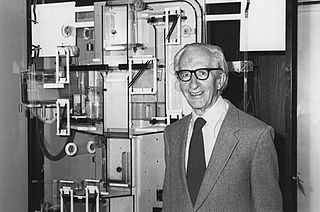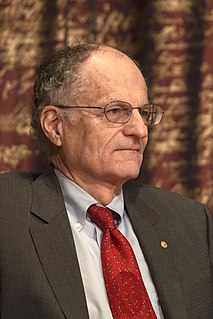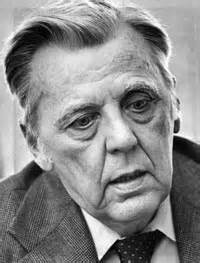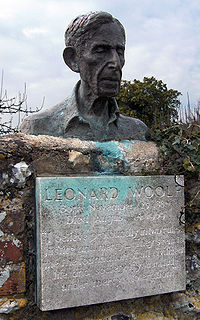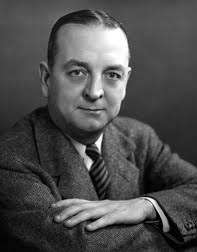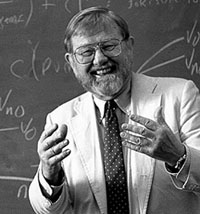Top 54 Keynes Quotes & Sayings
Explore popular Keynes quotes.
Last updated on April 20, 2025.
Notwithstanding all the passionate fulminations of the spokesmen of governments, the inevitable consequences of inflationism and expansionism...are coming to pass. And then, very late indeed, even simple people will discover that Keynes did not teach us how to perform the 'miracle...of turning a stone into bread,' but the not at all miraculous procedure of eating the seed corn.
I don't have too much interest in teaching other people how to get rich. And that isn't because I fear the competition or anything like that - Warrenhas always been very open about what he's learned, and I share that ethos. My personal behavior model is Lord Keynes: I wanted to get rich so I could be independent, and so I could do other things like give talks on the intersection of psychology and economics. I didn't want to turn it into a total obsession.
Where did Keynes stand on overt fascism? From the scattered information now available, it should come as no surprise that Keynes was an enthusiastic advocate of the 'enterprising spirit' of Sir Oswald Mosley, the founder and leader of British fascism, in calling for a comprehensive 'national economic plan' in late 1930.
Only someone as puffed up and demented as John Maynard Keynes, every left wing fascist's sainted mentor in this connection, could manage to convince himself that taxing America's Productive Class can restore it to prosperity. In point of fact, it's like screwing for chastity, guzzling alcohol for sobriety, or gorging to fight gluttony. It's like killing indiscriminately for peace - oops, Democrats, Republicans and their moral and spiritual ilk have devoutly believed that particular bit of perverse nonsense since at least the War of 1812.
The psychology of the saver and the psychology of the investor is very closely connected with Keynes' distinction between risk and uncertainty. When the future is uncertain, he thought that a lot of saving would be directed towards securing, securing more, getting more security in the present, rather than building wealth in the future, which was the classical view, you save in order to invest, in order to consume more later on. What he had called the propensity to hoard or liquidity preference would normally be stronger than the inducement to invest.
Keynes was chief economic adviser to the British government and largely responsible for keeping the British economy afloat at a time when more than half of our gross national product, and all of our foreign exchange, was being spent on the war. I was lucky to be present at one of his rare appearances in Cambridge, when he gave a lecture with the title "Newton, the Man." Four years later he died of heart failure, precipitated by overwork and the hardships of crossing the Atlantic repeatedly in slow propeller-driven airplanes under wartime conditions.
Friedrich Hayek, who died on March 23, 1992 at age 92, was arguably the greatest social scientist of the twentieth century. By the time of his death, his fundamental way of thought had supplanted the system of John Maynard Keynes - his chief intellectual rival of the century - in the battle since the 1930s for the minds of economists and the policies of governments.
Here we have the heart of the difference between Hayek and Keynes: one knew that markets work to give us the best of all possible worlds, while governments create and exacerbate malfunctions; the other imagined that governments were somehow capable of both perceiving and correcting malfunctions by means of the printing press, provided the right technocrats are in charge.
There's no automatic mechanism in a market system that reconciles the desire to save and the desire to invest. And therefore, the government has to sort of do something or the Federal Reserve, the Fed, or the Central Bank, or whatever, it has to intervene. It has to create enough investment for the economy not to suffer from a fall in aggregate demand. So, if you don't have a balance within the market system itself, then you need an external balance and that's what I think Keynes believed.
Ridiculous as our market volatility might seem to an intelligent Martian, it is our reality and everyone loves to trot out the 'quote' attributed to Keynes (but never documented): 'The market can stay irrational longer than the investor can stay solvent.' For us agents, he might better have said 'The market can stay irrational longer than the client can stay patient.'
It had been held that the economic system, any capitalist system, found its equilibrium at full employment. Left to itself, it was thus that it came to rest. Idle men and idle plant were an aberration, a wholly temporary failing. Keynes showed that the modern economy could as well find its equilibrium with continuing, serious unemployment. Its perfectly normal tendency was to what economists have since come to call an underemployment equilibrium.
Broadly speaking, Keynesianism means that the government has a specific responsibility for the behavior of the economy, that it doesn't work on its own autonomous course, but the government, when there's a recession, compensates by employment, by expansion of purchasing power, and in boom times corrects by being a restraining force. But it controls the great flow of demand into the economy, what since Keynesian times has been the flow of aggregate demand. That was the basic idea of Keynes so far as one can put it in a couple of sentences.
In the Western world, countries that were once the crucible of freedom are slipping remorselessly into a thinly disguised serfdom in which an ever higher proportion of your assets are annexed by the state as superlandlord. Big government is where nations go to die - not in Keynes' 'long run,' but sooner than you think.
Capital movements are no longer necessarily related to the production of goods and services. Through the financial markets of the world, capital movements today are overwhelmingly concerned with the capture of and trade in property rights, the ownership of assets that magnify a corporation's wealth, power, and control. It is what John Maynard Keynes described as "a casino world"-wealth without worth.
For centuries, economic thinkers, from Adam Smith to John Maynard Keynes, have tried to identify the elusive formula that makes some countries more prosperous and successful than others. My curiosity about this topic spurred me, as a young professor of economics in the late 1970s, to research new ways of measuring national competitiveness.
Keynes was a great economist. In every discipline, progress comes from people who make hypotheses, most of which turn out to be wrong, but all of which ultimately point to the right answer. Now Keynes, in 'The General Theory of Employment, Interest and Money,' set forth a hypothesis which was a beautiful one, and it really altered the shape of economics. But it turned out that it was a wrong hypothesis. That doesn't mean that he wasn't a great man!
In Europe and the United States the two decades following the Second World War will for long be remembered as a very good time, the time when capitalism really worked. Everywhere in the industrialized countries production increased. Unemployment was everywhere low. Prices were nearly stable. When production lagged and unemployment rose, governments intervened to take up the slack, as Keynes had urged.
Fossil fuel is very seductive stuff. [John Maynard] Keynes once said that, as far as he could tell, the average standard of living from the beginning of human history to the middle of the eighteenth century had perhaps doubled. Not much had changed, and then we found coal and gas and oil and everything changed. We're reaping the result of that, both ecologically and socially.
One of the most important skills of the economist, therefore, is that of simplification of the model. Two important methods of simplification have been developed by economists. One is the method of partial equilibrium analysis (or microeconomics), generally associated with the name of Alfred Marshall and the other is the method of aggregation (or macro-economics), associated with the name of John Maynard Keynes.
Fascism entirely agrees with Mr. Maynard Keynes, despite the latter's prominent position as a Liberal. In fact, Mr. Keynes' excellent little book, The End of Laissez-Faire (1926) might, so far as it goes, serve as a useful introduction to fascist economics. There is scarcely anything to object to in it and there is much to applaud.
I don't think that much change comes from economists. I think it comes more from political realities. Probably the two giants of the 20th century, who actually did shift government policy in the U.S. and around the world, were John Maynard Keynes and Milton Friedman. I don't see anybody in our system who is at that level of influence.
As a teenager, my father took me to the shows at the Architectural Association and to places like Milton Keynes back when it was first being built. But I couldn't find anything for me. There seemed to be despair at the possibility of the built environment possessing any imagination in the real world.
Wicksell's old-fashioned liberalism is reminiscent of John Maynard Keynes' attitude toward conscription during World War I. Keynes opposed conscription, but he was not a pacifist. He opposed conscription because it deprived the citizen of the right to decide for himself whether or not to join in the fight. Keynes was exempt as a civil servant from conscription; so there is no need to question his sincerity. Apparently his belief in the rights of the individual against a majority of his compatriots was very strong indeed.
The idea of confidence, of the emotions of the population, is an incredibly important one in economics. John Maynard Keynes called it 'animal spirit.' And if people are feeling generally good about the future, they're more likely to spend money, to start new companies; companies are more likely to hire people, make investments.







